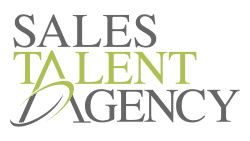
Have you landed an interview for a great sales position at a reputable company? If so, congratulations, but the interview is just the beginning of the journey. You want to ensure that you have done everything in your power to maximize your chances of moving on to the next stage of the interview process. Or, if you’ve really impressed them, get that offer letter. It is extremely important that you have a solid plan for following up with the interviewer after every stage of the hiring process. This shows them that you are taking the opportunity seriously, you respect and value their time and are very interested in the position. After all, you’re a sales person, only this time, you are selling yourself. Alarmingly, studies show that 57% of job seekers do not follow up with their interviewer. To make it worse, 22% of employers are far less likely to hire someone who fails to send a follow up email. Therefore, sending even a thank you note can significantly improve your chances of getting that dream job. Below are 5 tips for crafting and sending the optimal follow up email after every job interview.
1: The interview is complete, when should I follow up?
Simply put, the sooner you follow up, the better. This isn’t like going on a first date and waiting 3 days to see who calls first. You need to be proactive and send a well-crafted follow up email within 24 hours of leaving the interview. You want to remain top of mind for the hiring manager, so don’t leave them hanging.
2: What is the cadence and length of my email?
Recruiters, HR and other hiring managers get a lot of emails. You want to keep yours as short as you can while still being thoughtful. To begin, make sure the subject line is brief and clearly illustrates what your email is about. If multiple people interviewed you, email them all individually. In total, your email should be no longer than 2 paragraphs in length. Tip #3 will outline what to say within this word limit, but essentially you need to include the 5 items listed below in a succinct, to the point manner. Secondly, and equally as important to your email length, is your cadence. It is best practice to be thorough and courteous. Use professional terminology, but don’t make yourself sound like a robot. Since you are interviewing for a sales job, you need to prove that you have the ability to send strong follow-up emails. After all, sales representatives send an average of 36 emails per day according to Zoominfo.
3: What do I say in the email?
Below is a step-by step list including all of the items that you should address in every follow-up email:
- Open up by thanking the interviewer by name. After all, they have invested time into getting to know you better on both a professional and personal basis.
- Refer to the notes that you may have taken in the interview and spend a moment reflecting on them. For example, did you discuss a new sales strategy that the hiring manager is hoping to implement? Mention how you feel you could be an asset towards fulfilling that strategy based on your experience and skill-set. Did you give a great suggestion in the interview because of your experience in a similar situation? Re-share this point in more detail so the hiring manager can link your acumen with your experience.
- Before closing the email, leave 2-3 sentences about yourself that will set you apart from other candidates. Consider bringing up your past work experience and how it can help position you as a unique asset that other candidates may not be able to offer.
- Finally, end the email by offering to provide any additional information they may need upon request. It is also a good idea to ask that they keep you informed on when a final decision will be made. This will keep the conversation between you and the hiring manager going, and will of course, keep you from sitting by the phone anxiously waiting.
4: I made it to the second interview, does my follow up strategy change?
Luckily for you, these tips are still relevant for your second, third, and fourth interview. However, your follow-up email this time around should be more detailed. As you can imagine, the hiring manager has narrowed their search and only a few sales rockstars are left in the selection phase. So, use this opportunity to be more thorough and paint a bigger picture of yourself and your capabilities. In your second interview, you may have discussed specific company goals or projects that would pertain to the position they are hiring for. It is important to reflect on this in your email and provide insight as to how you could positively impact the outcome. For example:
I really enjoyed discussing the new sales strategy you are implementing for the upcoming year. I have spent some time reflecting on it and I have come up with a few ideas on where we should focus our efforts as we begin to implement it. Please find my suggestions in the powerpoint presentation attached. I would be happy to explain in greater detail with you at a later date and hear any feedback you may have.
5: I forgot to mention a point that I think is really strong, is it too late?
If you forgot to introduce an important idea during the interview, this is your chance to briefly make up for it. However, never apologize for answering a question poorly or not bringing a point up when asked. Not only is it unprofessional and makes the hiring manager recall your poor execution on an answer, it shows that you failed to prepare for the interview. When discussing a topic that you failed to mention during the interview, don’t frame it as “I forgot to mention”. Instead, frame it as “in addition to my point made in the interview”. For example:
I thoroughly enjoyed our discussion today about your plan for launching into a new market. Although we had a limited amount of time to chat about it, I just wanted to take a moment to share a few additional points that I think are relevant to our discussion that I did not have a chance to do so in the interview.
[Point 1]
[Point 2]
[Point 3]
I would be happy to further discuss a go-to-market strategy for the new market we are entering at a later date and hear what your thoughts are.
Remember that the fact is, nobody is perfect, and if they are, the hiring manager may get that “too good to be true” mentality. Own your mistakes and don’t be afraid to share 1 or 2 important points that you missed during the interview.
Don’t forget, the job interview is only the beginning of the conversation. On average, 250 resumes are submitted for corporate job openings and 1 in 6 applications are typically asked to come in for an interview. So, differentiate yourself and get ahead of half of your competition by sending a thoughtful follow up email. If you follow these steps, you can be sure that you have improved your odds of landing that job. Are you ready to put these email tips to the test? Check out our open sales jobs and apply today!
Subscribe below to get the latest content delivered right to your inbox.
